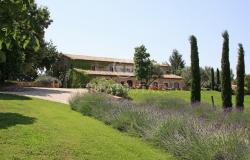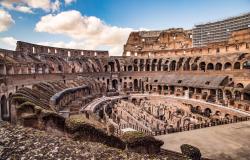 The regrouping tecniques of Rome's starlings could offer lessons for students of unpredictable behaviour like investor trends and consumer fads, a new Italian-led study says.
The regrouping tecniques of Rome's starlings could offer lessons for students of unpredictable behaviour like investor trends and consumer fads, a new Italian-led study says.
The 'Starflag' study, co-ordinated by Italy's National Institute for the Physics of Condensed Matter (INFM), for two years watched the flocks as they swirled at twilight over Rome landmarks, breaking down and rebuilding after the incursions of larger birds.
Like game theory guru John Nash in a famous scene from A Beautiful Mind, experts tried to figure out the dynamics behind the movement.
''If you watch a flock of starlings under attack by a predator, they split, merge and do all these incredible maneuvers,'' study co-ordinator Andrea Cavagna of the INFM told Physics Today.
Setting out to establish ''the fundamental laws of collective behavior and self-organization,'' Cavagna said, the theoretical physicists detected patterns that underlay the flocks' ''robust resilience'' to predator attack.
They found that a given bird interacts not with all birds within a certain distance, as most models had assumed, but rather with a fixed number of neighboring birds - usually six or seven.
According to another Starflag member, Irene Giardina, these interactions are much harder to disrupt than existing models of collective behaviour.
Charlotte Hemelrijk, a theoretical biologist at Groningen University in the Netherlands, said the Starflag results had helped her refine her own studies with fish patterns.
Modifying the fish models to account for bird behavior and interactions, she said, ''caused a remarkable switch in emergent patterns.''
The starling movements could have ''significant'' implications for studies of human behaviour, another Starflag expert believes.
Jean-Philippe Bouchard, a theoretical physicist who works with a Paris hedge fund, remarked that ''people are extremely influenced by their neighbors, by fashions and fads''.
The 'six or seven' rule apparently governing the starlings' movement ''might have an impact on market research,'' he said.
''Events like crashes or bubbles are due to the co-ordination of people,'' he noted, speculating that the Rome study might have ''broad repercussions'' - just as Nash's theories revolutionized economics.













